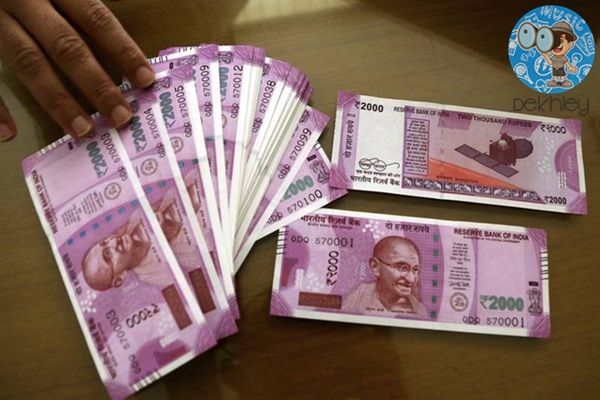Indian Prime Minister Narendra Modi took everyone by surprise when he announced just a few hours before midnight on 8th November that currency notes of Rs. 500 and Rs. 1000 will no longer be considered a legal tender. Although it was considered as a brave and bold move to eradicate black money from the country, but many are facing troubles over the lack of cash in hand. Even small business owners are going through a grind after the news. However, there is no need to panic and worry about your money if you have earned it rightfully. The new 500 rs notes and new 2000 rupees notes have already arrived at your nearest banks and you can get your old ones exchanged.
Why was the Indian Currency Demonetized?
In an economy as large as India, there is bound to be demonetization measures taken every 30-40 years. Previously it was done in 1978 and now in the year 2016. India banned 500 and 1000 rs notes due to the rise in corruption, hoarding of black money, and the circulation of fake notes in the market.
Furthermore, anyone whose deposits over 2.5 lakhs and doesn’t match with the income statement will have to pay the tax and an additional 200% penalty along with it (failing upon to provide valid proof of the income).
This move is taken positively by economists, industrialists and most of the population as it promises to eradicate corruption. Even the comparison of Indian rupee with USD is stable since the announcement. The government must now put the gained money for the progress of the country.
How to Exchange your Old Notes from Banks?
Following is the complete guide on how to exchange old 500 rupees note from banks if you have them with you:
- Collect all your cash money with the denominations of 500 and 1000: At first, you need to collect all the money that you have in cash of 500 and 1000 denominations. You must make sure not to miss out on any notes as they will be of no value after December 30th. Check with your family members if they have any cash money with them.
- Carry your valid Photo ID: For the exchange of your old notes as per the RBI rules, you would need to carry a valid Photo ID with you. The valid proofs include Aadhaar Card, Driving License, Voter ID Card, Passport, NREGA Card, PAN Card, and the Identity Card issued by Government Department or Public Sector Unit to its staff. Make sure to carry one of these while you go to your bank to exchange the money.
- Go to your nearest bank: You can go to any bank of your choice and not necessarily your home bank to exchange your money. Just make sure to carry your account details along with your identity proofs. All the banks are authorized to exchange the old notes for the new ones. If it is convenient for you, it is always better to head to your home branch of your bank.
- Fill up the exchange form: In order to exchange your notes, you would need to fill up a form in the bank in which you want to exchange it. You can easily get the form to exchange old currency notes from banks by asking for it at the inquiry counter of the bank. You need to fill your basic details in the form and the amount of money you want to exchange. The details like your name, a number of notes to be exchanged and their denominations, your identification number mentioned in your proof, and your signature will be needed.
- Exchange up to Rs. 4000 per day: You can exchange your old currency notes with the new ones for up to Rs. 4000 per day. This restriction is said to be reviewed after 15 days (after 24th November) by RBI. You would need to check for the latest updates almost every day to know the changing rules and restrictions. Don’t carry more than Rs. 4000 to your bank for exchange as you wouldn’t be able to.
These are the simple steps through which you can easily exchange your old notes with new ones for daily usage. You will find many banks for changing old currency notes in India and you can head to your nearest ones until 30th December 2016. As a means to ease the trouble of the people wanting a change of lower denominations, RBI has said that it will also allow ATMs to dispense Rs. 50 notes from now on.
What are the benefits of this move?
- As we all know various scams have disrupted the Indian economy to a large extent in the past few years. This move will definitely tackle those scams.
- The new notes that are being manufactured and brought in cannot be duplicated. This is a huge advantage for the economy as all the notes will be authentic.
- The future plans of the government also include introducing a fleet of new secure notes for all the denominations. Even the 1000 Rupees new note will be introduced soon in the market.
- For now, you will be able to change 1000 Rs notes with other denominations and use them. This is done so that people won’t panic in the situation.
There are endless economic benefits of the move to the country and we as the citizens of India must co-operate in this endeavor to help the country progress.



